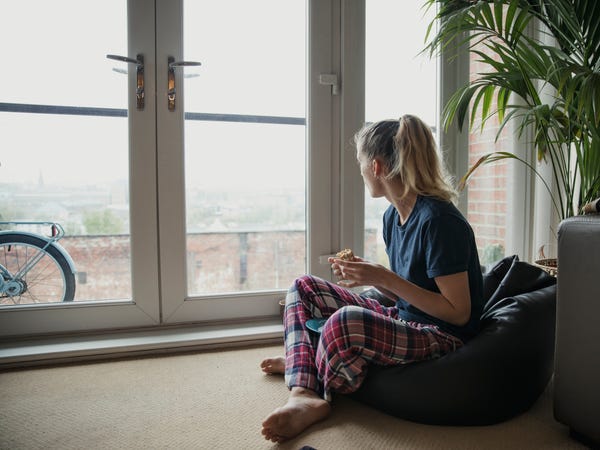Whilst in isolation it may feel like our worlds have been flipped upside down. Whether you’re working from home, lost your job or an essential worker during these uncertain times could leave you feeling perhaps stressed, angry, upset, confused and maybe even a little lost. Remembering that what-ever emotion your feeling is always welcome, no matter how uncomfortable it may be, isolation gives us the opportunity to draw our energy inwards to rejuvenate and reflect on why we may be feeling a certain way. Reminding yourself on the tough days that everything is impermanent, that this situation will pass. Take isolation as an opportunity to rest, reflect and do the things that you have been putting off!
When else are we going to be at home for this long period of time? Below are some tips and tricks to staying healthy and make the most of your time in isolation.
Gratitude
Gratitude is a thankful appreciation for what someone receives, it can be intangible or tangible. Whenever we are starting to feel down or negative, a great way to be optimistic is to write down three things you are grateful for, for that day. These things could be as simple as ‘I am grateful for my morning coffee’ or ‘I am grateful for the sun shining’. By making it a habit and writing 3 things you are grateful for everyday has shown to increase positivity and happiness.
Sleep
Due to environmental changes and stress it is very common to experience change in sleeping patterns and sleep disturbances. The cardician rhythm, also known as the sleep/wake cycle is a 24-hour internal clock, found in the hypothalamus in the brain which cycles between sleepiness and alertness at regular periods. Ways to regulate the circadian rhythm include:
- 7 – 9 hours of sleep every night
- Create a routine bed-time and wake time that is consistent. For example, bed-time at 10.00pm wake at 6.30am
- Avoid doing physically or mentally stimulating activity 2 hours before bed
- Avoid light exposure 2 hours before bed, this includes T.V, laptop screens, phone screens and use a dull light in the bedroom such as a candle
- Drink your last caffeinated drink such as coffee by 1pm in the day.
- Eat a healthy well-balanced dinner including a protein source, healthy fat and small amount of carbohydrates at least 3 hours before bedtime. Limit any high sugar containing foods
Routine
Daily routines can be very helpful during these uncertain times and create a sense of structure. By creating a plan for each day by setting tasks with allocated times can provide a sense of achievement and productivity. Example of a structure daily routine is as follows:
Early morning:
- wake, make a cup of tea
- 10 minutes seated meditation or breathing exercise such as the box breath.
Morning
- Create tasks for the day with set times allocated. This can be done on note pad or diary.
- Change into work clothes. Work clothes can be track pants or leggings and a jumper, just changing out of your pyjamas will make you feel more productive.
- Complete your morning tasks, everybody’s will be different.
Lunch
- Take time to eat your lunch mindfully away from technology if possible. Eating out-side can be a lovely way to reduce distractions and get some fresh air!
- Perhaps you’re used to talking with work colleges on your lunch break, why not organise a zoom catch up with a friend to stay connected.
Afternoon
- Complete any more tasks that need to be done
- Exercise – this could be simply as a 30 minute walk, gardening or a home workout online! This will not only create physical benefits but mental benefits too.
Evening
- Cook and enjoy dinner
- Relaxing activity such as reading, drawing, yoga
- Settle into bed
Create a schedule that suits you and your best productive time periods. For example perhaps you feel like exercising in the morning and feel most productive to complete tasks in the afternoon. Be kind to yourself, if you don’t complete all of your tasks in one day that’s perfectly okay! Some days we will feel less productive than others, always listen to your mind and body and honour if you need rest.
Learn something new
With no commute time to work and perhaps fewer social interactions on the weekends, you may be feeling a little bored. This is the perfect opportunity to learn something new! After World War 2 there were many new inventions such as computers, ATMs, super glue and photo coping, as people had more time to brainstorm. Not saying you need to create the next computer, but why not do something that interests you or you may have been putting off. Below is a list of things that may interest you to do whilst you may have some more free time:
- Learn new language – free apps on your mobile phone
- Follow a new recipe to create a meal for family dinner – loads of recipe on the internet
- How to do make up – there are plenty of free tutorials on You Tube
- Create a veggie patch – great way to get some fresh air and vitamin D whilst outside!
- Read a new book
- Learn a new dance style such as tango, hip hop, salsa
Paige x


